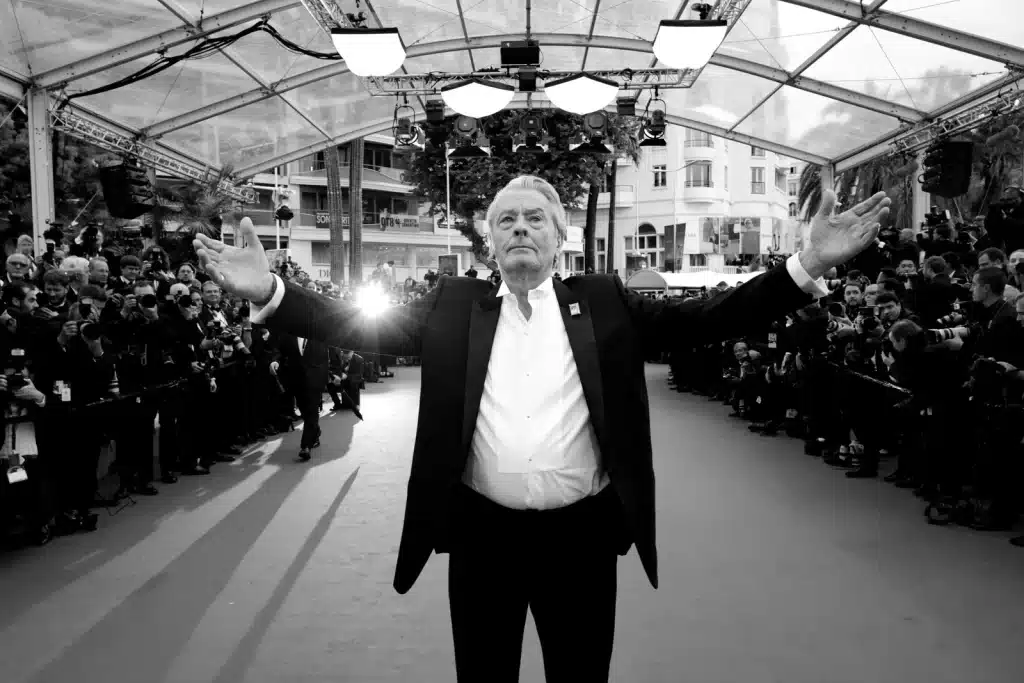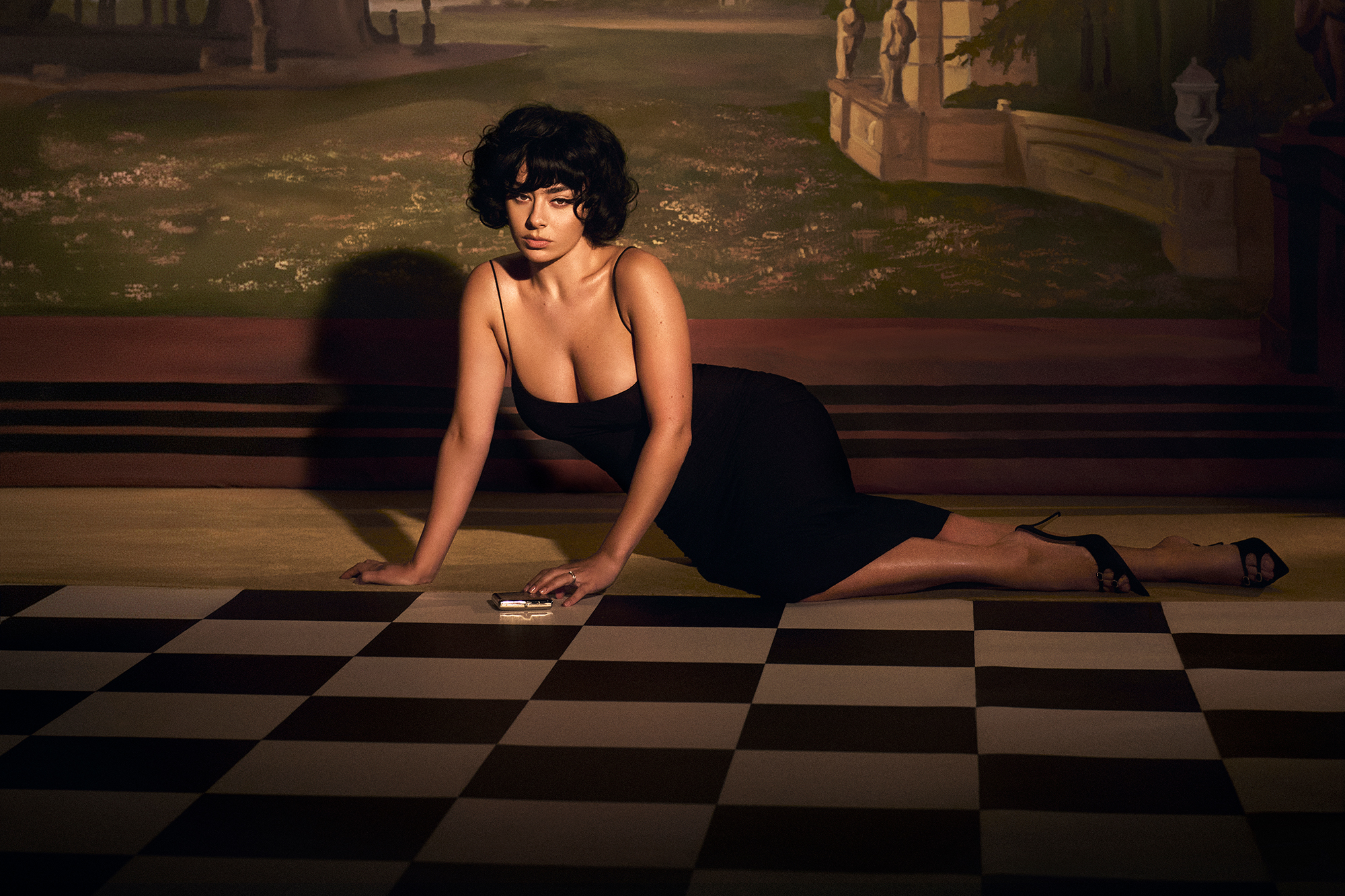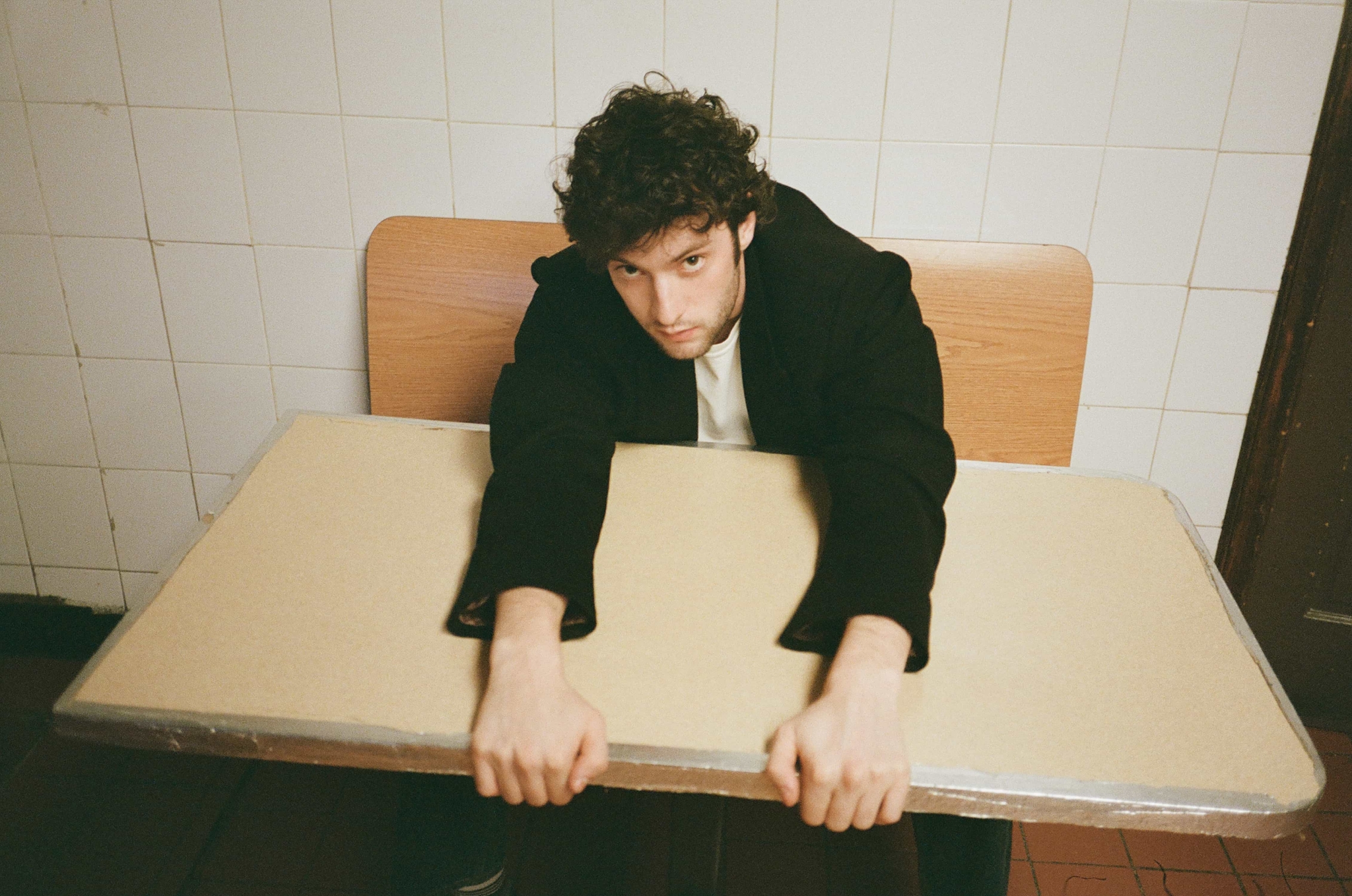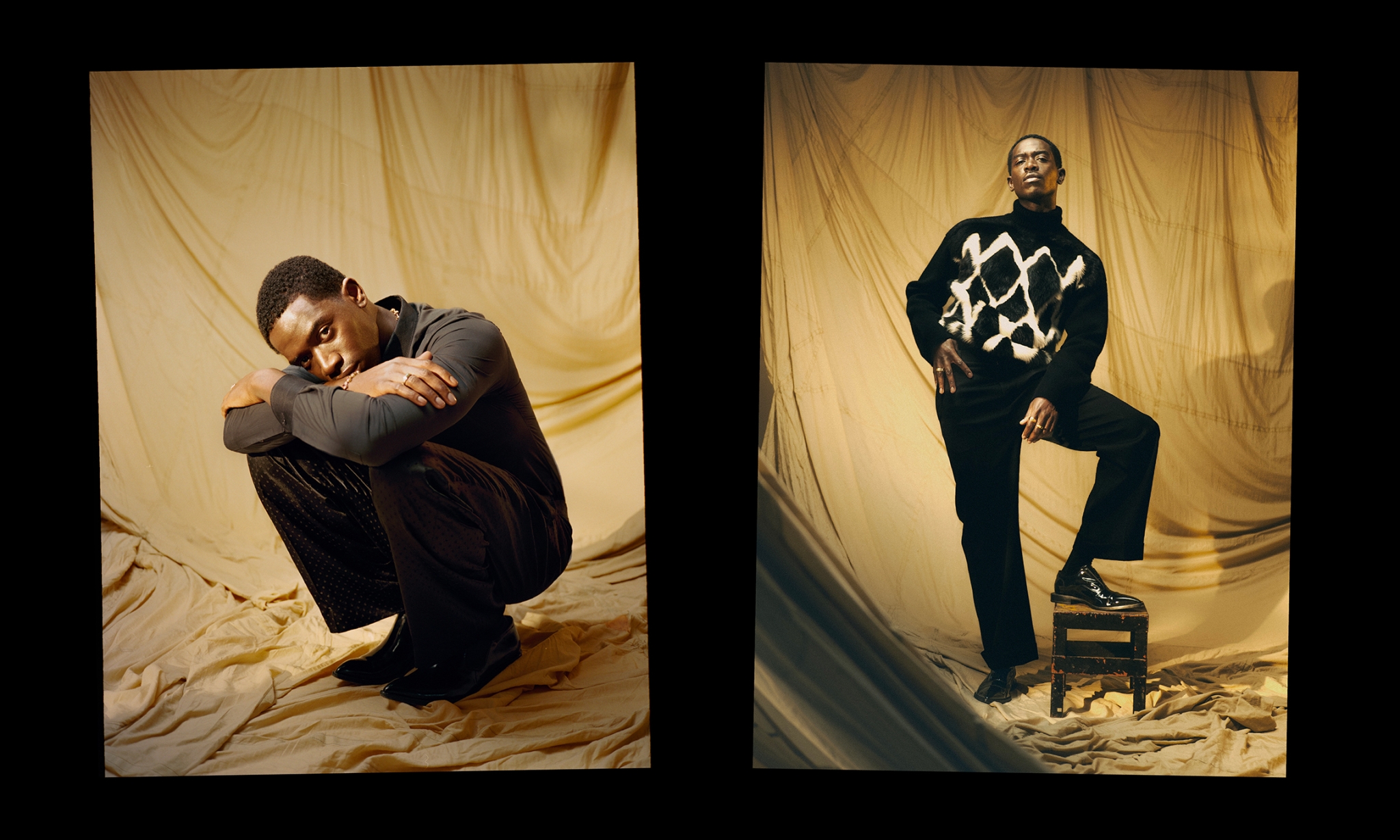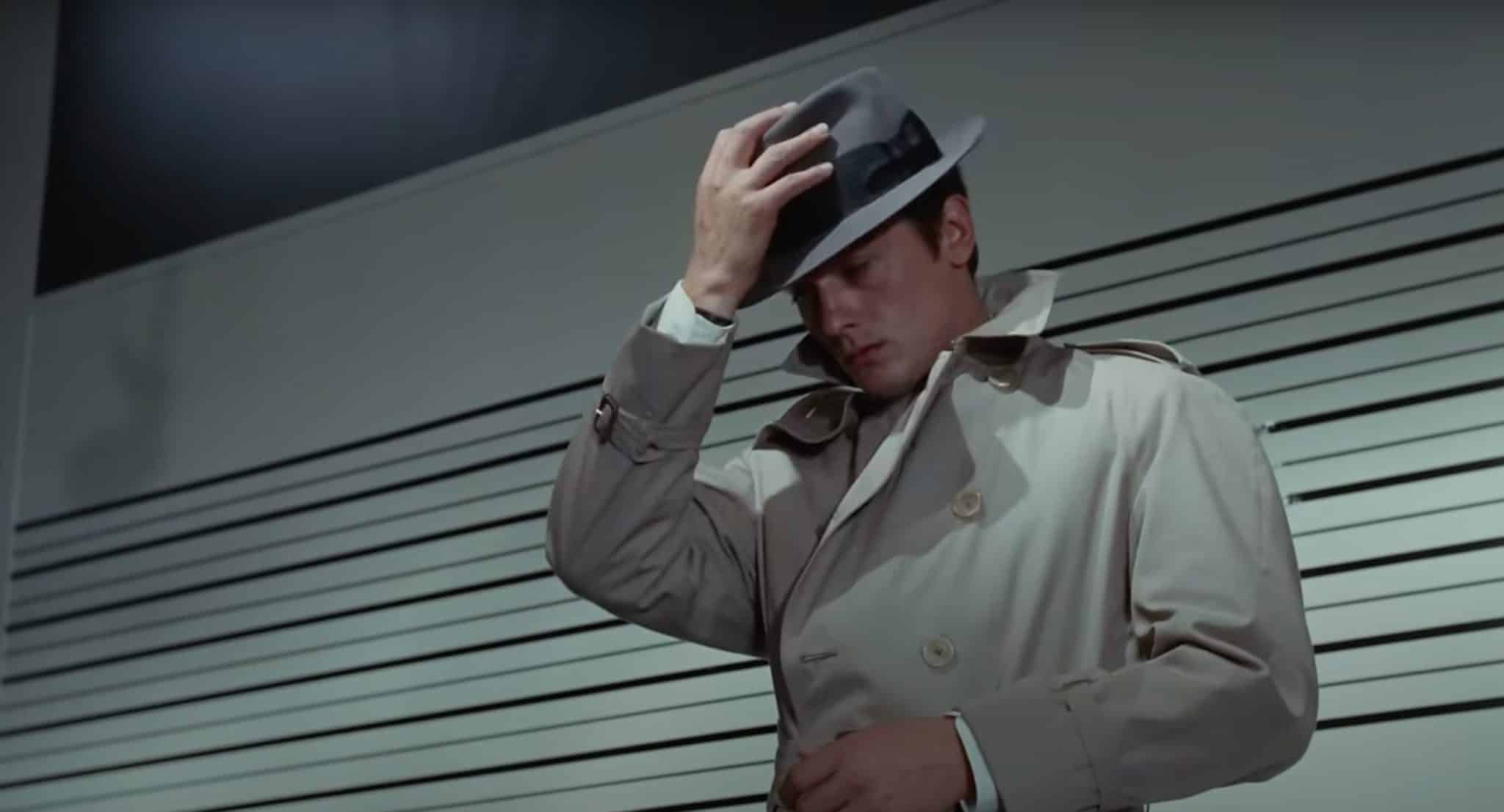
My father was never a cinephile. However, he would go to the cinema to pass some time, entertain himself, and see things that he’d never seen in his real life. He would mostly watch American action films. There wasn’t much available to pick from in the cinemas in Athens, as it was still a relatively small market and distribution was limited.
But I always remember him talking about someone named Alain Delon. The way he talked about him, I wasn’t sure if he was talking about an actual person, a character, or if he was describing an ideal of male beauty and charisma of that era. Of course, American cinema never lacked male leads who enchanted the audience and made every man on the other side of the screen try to act, talk and look like them. Remember how Jean-Luc Godard entertained that idea, when Jean-Paul Belmondo in Breathless, tries to ridiculously flip his cigarette on camera, as if trying to seduce the whole world at once. Humphrey Bogart, Cary Grant and James Stewart, to name a few, epitomized the American ideal and influenced the collective imagination as few other figures did, transcending cinema and reaching every corner that popular culture could reach.
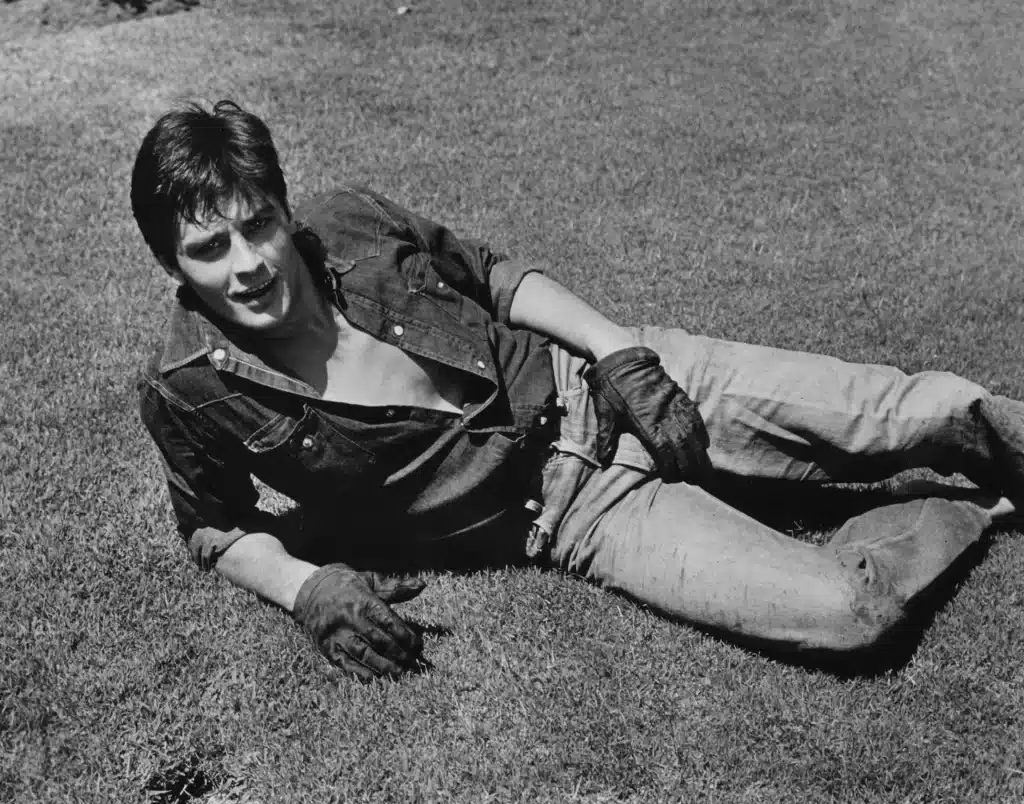
However, the thing with Alain Delon was not that he was just a popular and most wanted actor of his time, but that with his appearance in world cinema, the ideal of male beauty came strongly into the picture. And this happened in a way that was very different than before. He didn’t just come across as masculine, handsome, strong, and seductive but beautiful in an Aphrodite-like way. I vividly recall funny instances where the name of Alain Delon came up in conversation, having transcended itself into a term for a man as someone who was very beautiful.
Alain Delon was quite an interesting figure in French culture, an obscure young man who, having fought the war of Indochina, appeared in the golden era of French cinema and kept the media busy with his personal life until the very end. The archetype of the protagonist that he introduced is probably his biggest legacy. An always intense and dramatic character, not talking a lot but letting his actions speak for himself, with an idiosyncratic sense of morality and do-the-right-thing-ness. Delon repeatedly said that he never acted, but played different versions of himself, making it easy for the mainstream European audience to identify with him during the time of big Hollywood productions and overly polished films
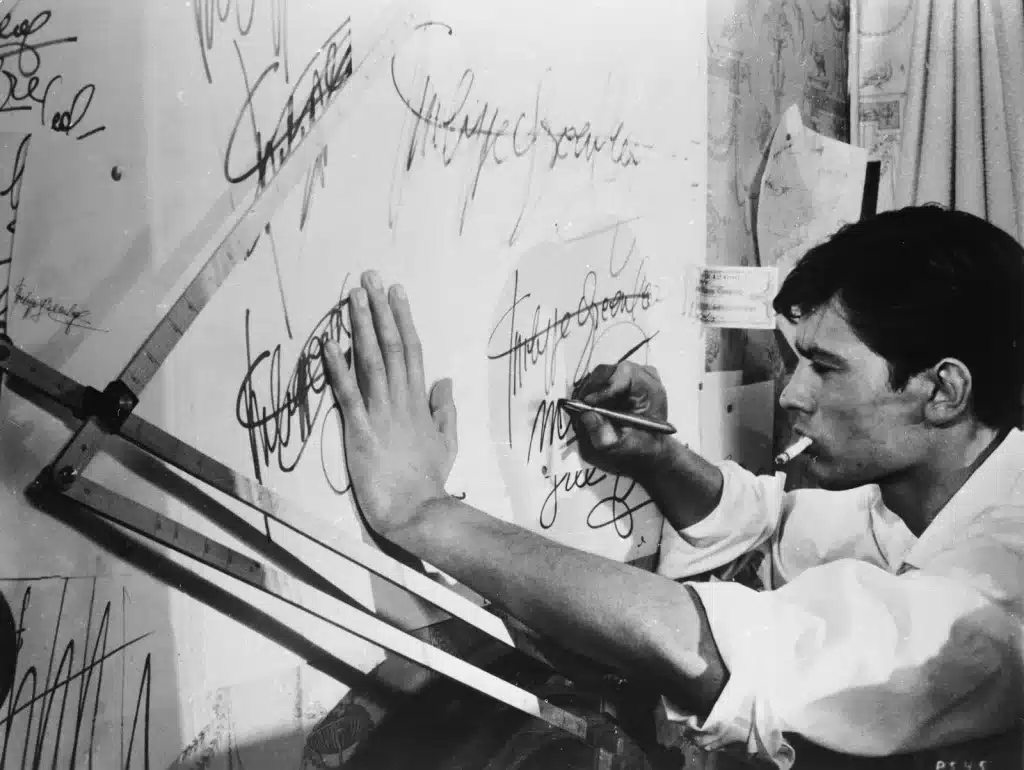
While writing this small essay, a book sits next to me with a photograph of Jean-Piérre Leaud on its cover and the text: La vie n’existe que quand je tourne. “Life exists only when I’m shooting. And I can’t help but think of these two opposites of film stars that existed in European cinema simultaneously. Alain Delon and Jean-Piérre Leaud. Mr. Klein and Antoine Doinel. I have the same feelings for the Marcello Mastroianni of Antonioni and for the Marcello Mastroianni of Fellini, but this is a very different conversation that deserves an essay of its own.
Delon and Léaud are probably—along with Belmondo—the biggest film stars that emerged out of French cinema, and they represent two very different sides of French culture and of French society at once.
Starting my personal journey into film, I first came across Léaud while studying the French New Wave at film school, recognizing him and his iconic Antoine Doinel character as its perfect embodiment. A humble and honest young man trying to navigate the complicated and traumatic historical context of post-war Europe. Antoine Doinel was not privileged and he was well aware of that. While he would do whatever it takes to make ends meet, he would make sure of remaining this sweet and kind and sympathetic character, who always cared about the others. An ideal of a main character, invented by François Truffaut, in a time where probably cinema had enough of tough guys already.
The French New Wave, while being groundbreaking in its techniques and its methods, talked about everyday life in the simplest and most honest way. It was authentic, in a sense that it was easily relatable, using a language that at its core could come across to everyone in such a way that sometimes it did feel like real life. After all, it was during that time that the term Cinema Verité was invented in order to describe a filmmaking style that showed people in everyday situations with authentic dialogue and naturalness of action.
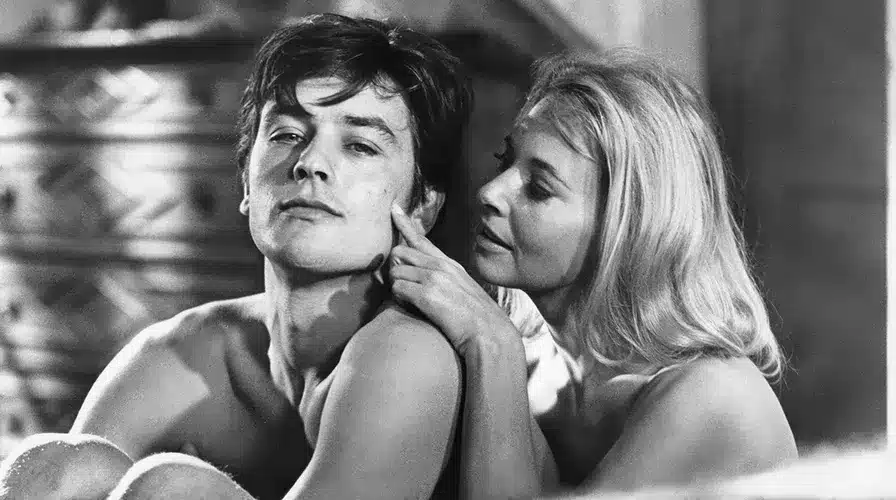
I was almost shocked to find out that there was a different cinema existing in France. A more popular or mainstream cinema, a cinema that filled the theaters with crowds going about mystery, action, romance, bad guys and femmes fatales, which was heavily influenced by Hollywood.Suddenly, out of nowhere comes Alain Delon, this passionate and intense young actor, never actually falling for the sirens of Hollywood and staying in Europe to give flesh and bone to that cinema and mark it forever. His characters remain iconic, his acting inimitable, and the way he embodies French nonchalance: unbeatable.
Revisiting films of Alain Delon in the future will remind me of a time when protagonists were not just good or bad. There were no heroes or antiheroes. There was no right or wrong. It was just him and the director and the camera, all working in perfect sync. Like the hypnotizing opening sequence of Le Samourai where the audience is treated with one of the most beautiful uncomfortable silences ever recorded on film. I actually wish I could watch it again, for the first time.
